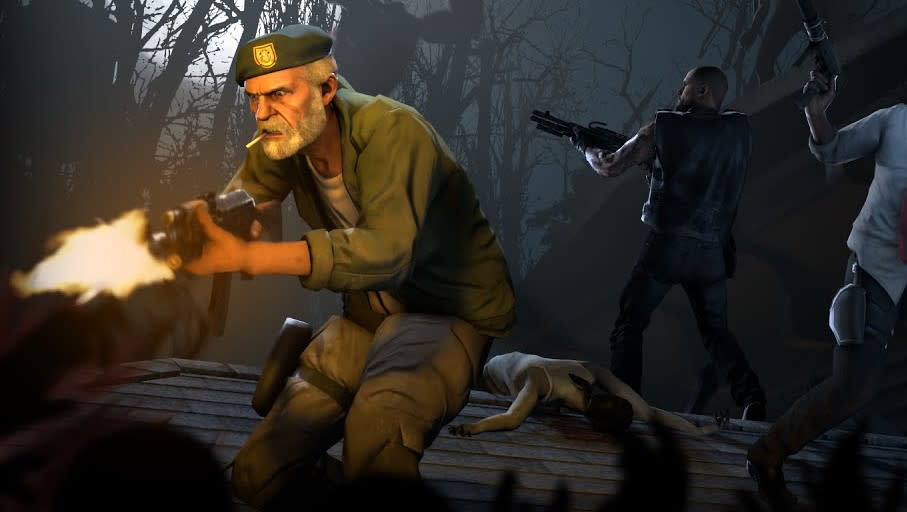The reason we got Left 4 Dead 2 as a standalone game was because the first one 'was such a broken thing that nobody wanted to touch it'

It was Left 4 Dead 2's birthday two days ago, marking 14 years since the release of our 70th top PC game of all time. It's all a distant memory now, but that game's announcement originally drew a fair bit of heat from fans, even sparking one of our hobby's many doomed fan boycott movements. Releasing almost exactly a year after L4D1, some fans felt that Valve had betrayed them. Where was the long tail of development for the first game? Why was the studio moving on to something entirely new instead of integrating L4D2's content into the first game?
Well, it turns out there's an answer to that, and it's because L4D1 was so spectacularly broken no one at Valve dared touch it. So says Chet Faliszek, former Left 4 Dead lead and current lead on The Anacrusis, in a recent chat with Game Developer.
"I don’t think outside people can appreciate how broken the Left 4 Dead engine was," said Faliszek. "It loaded each map two or three times in the background." Attempts to fix the issue resulted in player characters randomly disappearing, leaving Valve devs reluctant to touch the rickety-but-functional Jenga tower they had constructed.
But that made for a problem when it came time to make L4D2. With L4D1 only just released, it likely made more sense to integrate the second game's content as an update or DLC, but no one dared risk upsetting the first game's fragile balance. "Left 4 Dead was such a fragile thing that nobody wanted to touch it," said Faliszek, "There was no way you were going to support mods for Left 4 Dead in the same way we did for Left 4 Dead 2 without a big reset."
And so a big reset was what we got, in the form of a whole new game in the Left 4 Dead series rather than a load of add-ons for the first game. It worked out for the best in the end—and we might now hunger for those days when Valve released a whole two games in the span of a year—but it caused some upset at the time.
If you're wondering why Valve didn't come out and tell everyone that the reason it was making L4D2 was because the first game was so busted, Faliszek has an answer: "When people kill themselves to ship a game, you don't really want to say that there were problems with it… To be appreciative of that, I’d rather just have somebody mad at me because they thought it was my idea.”
